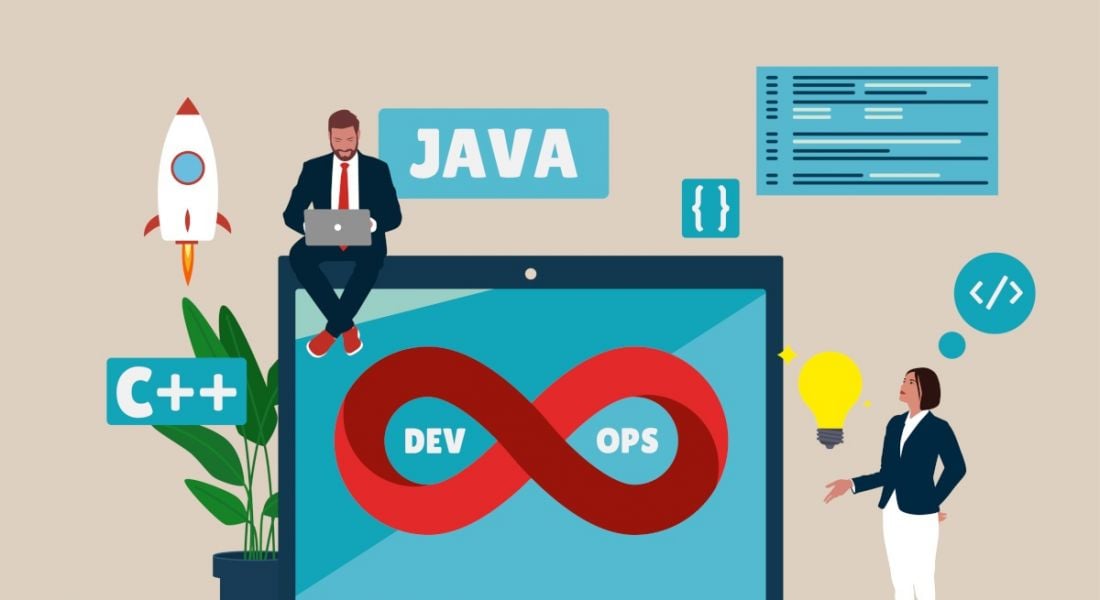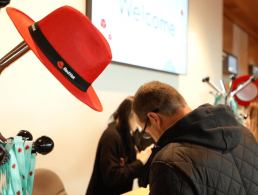Jonny Williams, agile delivery lead at Red Hat, tells SiliconRepublic.com that his job is all about empowering businesses to be open-minded and resilient.
With tech changing at such a dizzying pace and different teams working together in new ways that might have previously been thought of as inconceivable, an agile mindset is more important than ever. It can be the difference between success and failure in a DevOps team in particular, as these are the people that drive both the creation and implementation of new tech products.
But what does an ‘agile mindset’ mean? If you’re in any way familiar with DevOps, you may have heard of the job title ‘agile delivery lead’ – these are people who blend tech knowledge with leadership and project management skills. A good agile delivery lead is always one step ahead of the posse. To learn more about what is involved in leading a DevOps team to think creatively and deliver quality products, we spoke to Jonny Williams, agile delivery lead at Red Hat.
An enabler for others
“The work I do can vary significantly day to day, but I always try to be an enabler for others, whether they are customers, colleagues, or users of our products,” Williams explains. “I aim to be a leader who serves the needs of those around me and apply coaching and facilitation to achieve this while applying my experience with agile and lean approaches to remove impediments and increase people’s ability to deliver value. I love having opportunities to generate alignment and ensure that people are able to confidently make decisions, especially as a workshop facilitator with diverse groups of people.”
‘If you’re spending hours contemplating the stack that you want to deploy, but you haven’t given much thought to your people strategy and how your processes can be improved, you are unlikely to unlock the true benefits of DevOps’
He says his job has made him a consummate storyteller, as he finds he has to find creative ways of explaining different ideas to various groups of people. “The skill that I use more than any other to support my work is storytelling. Having the ability to articulate complex ideas and paint a picture for the people around me is the best way to generate alignment and ensure we understand where we’re going and, more importantly, why. I don’t think I could perform my role without having storytelling in my toolbox.”
Storytelling builds trust
Williams enjoys the storytelling aspect of his role so much that he has written a book with advice on how to coach teams to deliver value. He finds that storytelling and explaining things like a storyteller might do helps to build trust in the teams he oversees.
“Trust underpins everything in a DevOps culture, so anything that can be done to foster trust and strengthen relationships will pay off,” says Williams. “Without trust, communication falls apart, and fundamentally DevOps is about changing your communication model to increase effectiveness.”
“It’s not all about technology,” he adds. “If you’re spending hours contemplating the stack that you want to deploy, but you haven’t given much thought to your people strategy and how your processes can be improved, you are unlikely to unlock the true benefits of DevOps.”
Being a storyteller, he uses an analogy to illustrate his point. “I would advise organisations to remember that trust is like a bank account; you have to pay in before you can make a withdrawal. If you aren’t actively building trust then you can end up with a deficit of goodwill that makes change incredibly challenging and can significantly undermine your ability to deliver value.”
How to embrace change as a DevOps leader
But trust is a double-sided thing and business leaders have to work on themselves in order to gain the trust and respect of colleagues. “As a leader, you set the tone,” says Williams. “If you want to hold onto the same old behaviours but hope that everyone else will work differently, you are setting yourself up for disappointment. Taking the time to be introspective before embarking on a journey of transformation is essential because people will follow your lead. A clear example of this is when leaders expect teams to embrace new technologies or innovative approaches, but they are entirely unwilling to change their own practices, whether that is something tiny like how they offer feedback or something larger, such as how teams are funded.”
‘Trust underpins everything in a DevOps culture…Without trust, communication falls apart, and fundamentally DevOps is about changing your communication model to increase effectiveness’
DevOps leaders with an agile mindset are open to new ideas and seek feedback from people around them, says Williams. He warns that close-mindedness or “misalignment” can hinder progress and “ultimately create a change-resistant culture”.
“The simplest solution to this is to ensure you are open to new ideas, that you continuously expand your knowledge and that you actively seek feedback from those around you.” He thinks that any successful organisation should be prepared for change, both technological and environmental. Having a good, agile DevOps culture in place can help organisations be resilient in the face of change. For Williams, it is a no-brainer.
“More than anything, I believe an effective DevOps culture reduces risk and increases the impact an organisation can have. Rather than time being consumed by avoidable outages, burdensome dependencies, and fragile delivery methods, DevOps ensures organisations are resilient and can welcome change. Ultimately, any modern organisation must be able to embrace change if they want to succeed, and DevOps creates the space for this to happen.”
10 things you need to know direct to your inbox every weekday. Sign up for the Daily Brief, Silicon Republic’s digest of essential sci-tech news.








